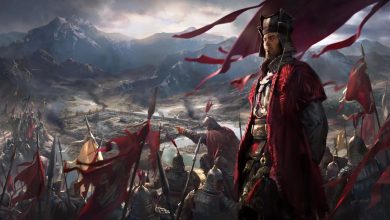The Future of Strategy Gaming: Trends and Predictions

Strategy games have been around for decades and have evolved significantly over the years. From turn-based games like “Civilization” to real-time strategy games like “Starcraft,” these games have captured the imaginations of millions of players and continue to be a staple of the gaming industry. However, the future of strategy gaming looks set to bring a whole new set of challenges and opportunities, and it’s worth taking a closer look at what we can expect in the coming years.
One of the biggest trends that is shaping the future of strategy gaming is the growing popularity of mobile gaming. With the rise of smartphones and tablets, more and more players are choosing to play games on the go, and this trend is only set to continue. Strategy games are well-suited to mobile devices, as they typically require less complex controls than action games and can be played in short bursts. This has led to a proliferation of mobile strategy games, from city-building games like “Clash of Clans” to tactical games like “XCOM: Enemy Within.”
Another trend that is shaping the future of strategy gaming is the increasing use of artificial intelligence (AI) and machine learning. These technologies are being used to create smarter and more engaging AI opponents, which can challenge even the most experienced players. Furthermore, AI is also being used to generate randomized maps and events, ensuring that each play-through of a strategy game is unique and engaging. As AI technology continues to improve, we can expect to see even more sophisticated AI opponents in future strategy games.
Virtual reality (VR) is also set to play a major role in the future of strategy gaming. VR technology offers a new level of immersion and interactivity, making it an ideal platform for strategy games. Players can become fully immersed in the game world and interact with it in a more natural and intuitive way, making strategy games even more engaging and immersive. However, there are still challenges to overcome in terms of cost and accessibility, but as VR technology becomes more widespread, it’s likely that we’ll see more and more strategy games being developed for VR platforms.
Another important trend in the future of strategy gaming is the growing focus on online and multiplayer experiences. Many strategy games have always had multiplayer elements, but in the future, we can expect to see even more emphasis on online play, with players competing against each other from all over the world. This will bring a new level of challenge and excitement to strategy games, as players will have to adapt to different playing styles and strategies in order to be successful. Furthermore, online play will also make it possible for players to collaborate and form alliances, making the experience even more engaging and strategic.
Finally, we can expect to see a continued focus on historical and cultural themes in strategy games. These themes have always been popular in the strategy gaming genre, and in the future, we can expect to see even more games that explore different eras and cultures. From ancient civilizations to medieval kingdoms, strategy games will continue to provide players with a window into the past and a chance to experience the strategies and tactics that shaped the world as we know it.
In conclusion, the future of strategy gaming looks set to be even more exciting and challenging than ever before. With the growing popularity of mobile gaming, the increasing use of AI and machine learning, the rise of VR, the emphasis on online play, and the continued focus on historical and cultural themes, strategy games will continue to be a staple of the gaming industry for years to come. Whether you’re a seasoned strategy gamer or just starting out, the future of this genre promises to be full of new and exciting experiences that will test your skills and keep you entertained for hours on end.




